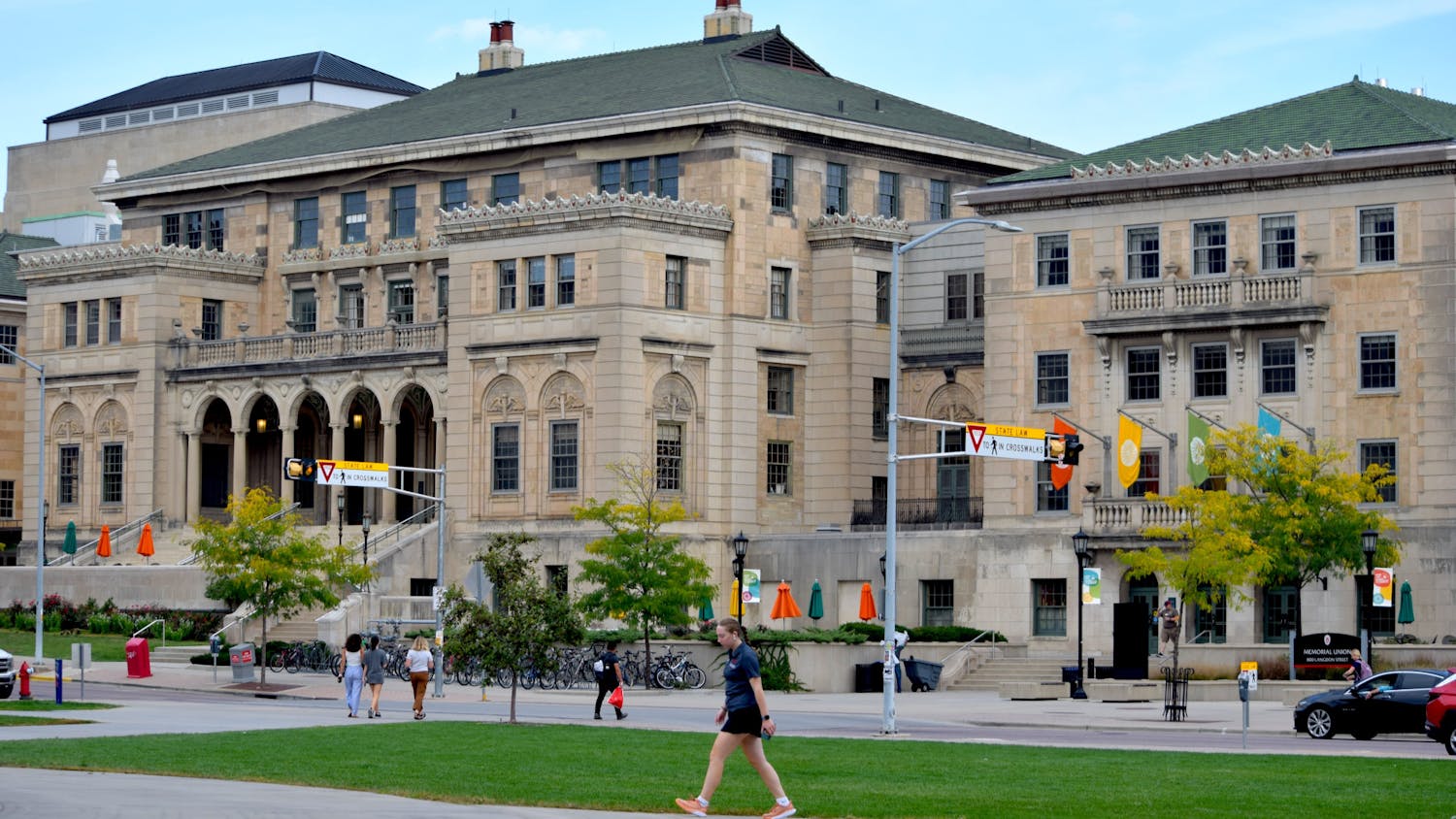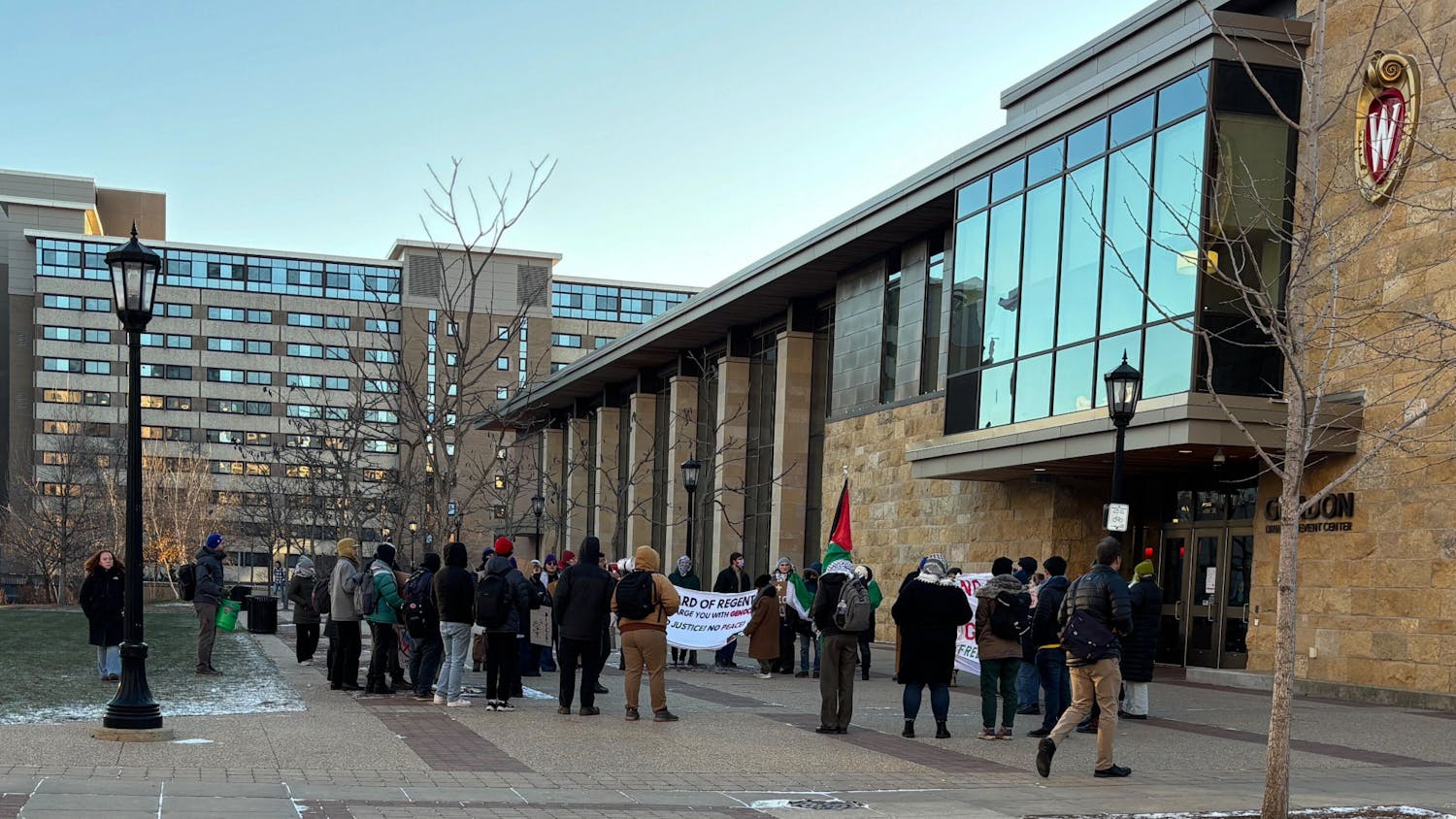We have a sexual assault problem.
By now, you’ve probably seen or heard of the statistics from a recent national survey on campus climate: More than one in four female undergraduate students at UW-Madison report having been sexually assaulted in college.
It’s a startling statistic, but sadly, is this new information?
The university actively sends out WiscAlerts to students after any assault takes place in campus housing or on campus. These come as a result of the Clery Act, a federal statute that mandates colleges disclose crime information to students in a timely manner.
This academic year has already seen five timely warnings of campus-related assaults from UWPD, and one sexual assault that occurred off-but-near campus and was ruled an attempted homicide by the Madison Police Department.
Having an informed campus is important, but this information doesn’t come full circle. It’s hard to see WiscAlerts as valuable when we’re not seeing the whole story. As students, the knowledge of assaults means nothing if we’re not also seeing what is being done about said assaults. Where is the action? Where are the consequences?
In a Sept. 18 article in The Daily Cardinal regarding sexual assault trends, UWPD Public Information Officer Marc Lovicott said he did not believe the semester’s influx of assaults was anything out of the ordinary.
“All of these cases are troubling, but I don’t think it’s fair to say this year is exceptionally different than previous years,” Lovicott said.
It’s upsetting as students to know that this is our “normal.” Regardless of historic trends, there needs to be more concern about this pattern and an active force to end this annual trend.
Maybe UW hasn’t been seen as publicly inept at dealing with sexual assault as other universities have, like Virginia or Columbia, but we can’t wait until our school makes national headlines to enact change.
UWPD has issued and funded a pro-social campaign targeted at male audiences, telling viewers “Don’t Be That Guy.” The campaign—consisting mostly of images of drunk, college-aged girls in party situations—is a start; it’s a beginning to the conversation. But the campaign targets a behavior, not an attitude.
Our campus doesn’t need emotionally charged images, it needs facts.
If you don’t know where to look, it’s near impossible to find the information a victim of sexual assault needs. We, members of The Daily Cardinal editorial board, had difficulty finding the procedures each campus outlet has in place to deal with a sexual assault.
Who do you call if you’re the victim of assault? Most students would instinctively call 911 after an assault takes place. Yet depending on where the assault takes place, this may not be the “right” choice. There’s a difference in reporting an incident to UWPD and MPD—but to the average student, is that difference clear?
Beyond the initial report, what happens? Information surrounding resources and support is not easily accessible, and the disciplinary process is buried in pages of university legalese.
Carmen Hotvedt, the manager of Violence Prevention and Victim Advocacy for the End Violence on Campus program at University Health Services, said that the legal jargon associated with process is due to the language stemming from the state.
“The student disciplinary code is a state administrative code, so the campus has limited flexibility to do anything differently,” Hotvedt said.
She added that the university relies on campus and community services and organizations, like the Rape Crisis Center, to provide clarity on these documents and procedures, so the university is not outright providing interpretations.
However, there is a difference between interpretation and clarification. It’s great that university and community groups are working to make this information digestible for students, but the university needs to take a more active role in this process.
UW needs to invest resources in providing clear and concise information on steps to take in the event of a sexual assault. There is too much confusion and too many questions surrounding a topic we all know is worthy of adequate attention and care.
We acknowledge that university officials plan to hold “engagement sessions” regarding UW’s culture of sexual assault. But there is only so much that can be tackled through discussion without an understanding of policy, which UW needs to recognize is an institutional responsibility.
UW makes a great push toward exposure of academic integrity, so why not also focus on higher interpersonal accountability? There needs to be a clear set of expectations for students at this university.
University officials have said there will be an expansion of the “Tonight” program, the assault education online course incoming students take the summer before their freshman year. Hotvedt noted that current plans have freshmen taking a “second dose” of “Tonight” some point in their first semester.
With the program’s broad content, surface-level assessments and initial presentation to students before they even step foot on campus, it would be more beneficial to establish a system of breadth requirements or a freshman seminar to accurately educate students on the reality of sexual assault.
We need more than posters hung around campus buildings. We need clear and accessible procedures for reporting assaults. We need transparent and commonplace sanctions for when an assault occurs. We need to stop talking about this trend and do something to change the statistic.
What do you think of our perspective on the topic of the administration’s response to sexual assault on campus? Send all comments to opinion@dailycardinal.com.





